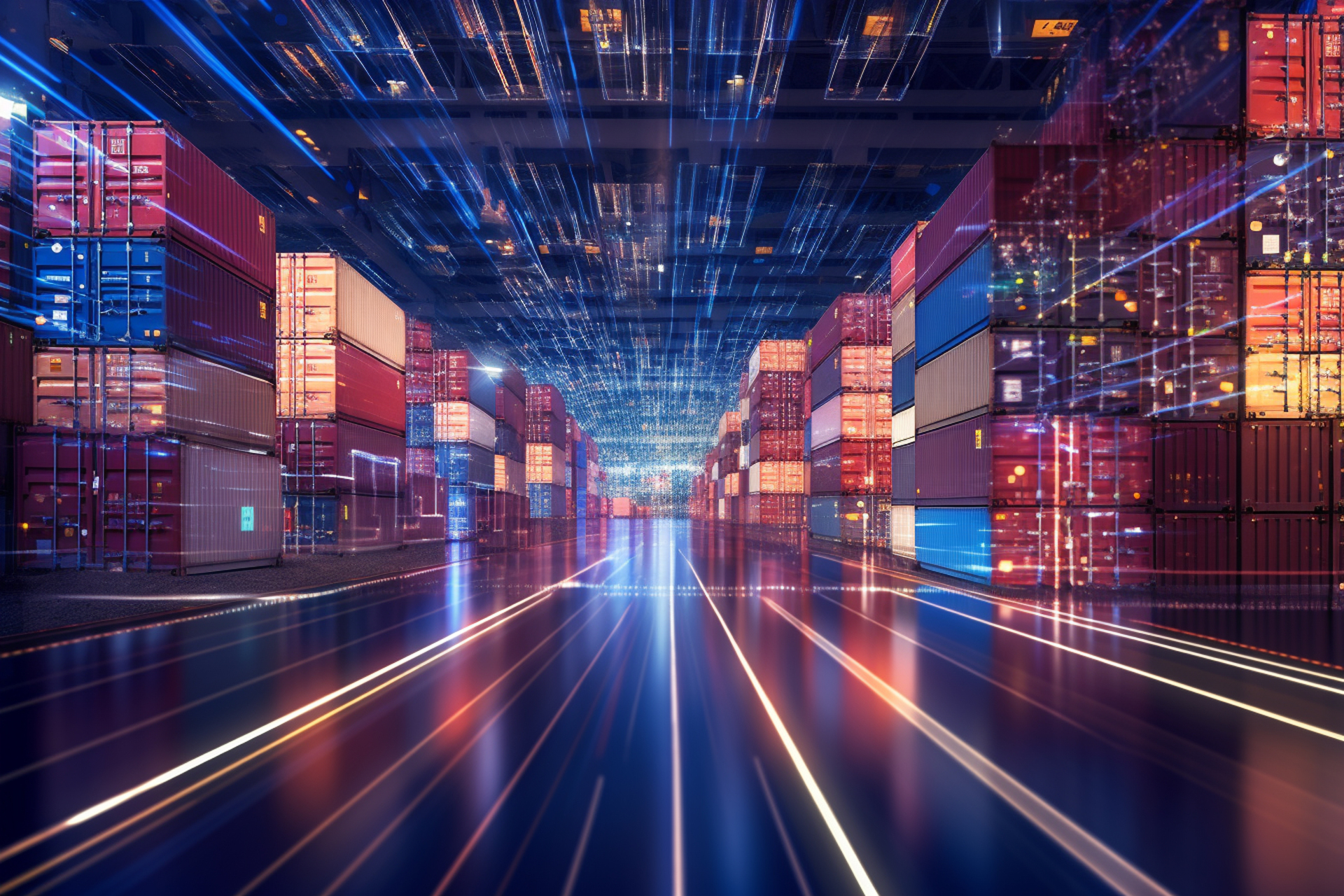19/08/2024
Leveraging AI, IoT, and Automation to Enhance Efficiency, Sustainability, and Supply Chain Visibility
SHIPPING NEWS | 7
Smart Ports Revolutionizing Global Trade: How Technology is Shaping 2024
Smart Ports and Global Trade: How Technology is Shaping 2024
The global trade landscape is undergoing rapid change, with smart ports revolutionizing global trade through digital transformation that streamlines logistics and port operations. Smart ports, at the forefront of this shift, are revolutionizing the shipping industry, boosting efficiency, and enhancing supply chain visibility. This article explores how smart ports are revolutionizing global commerce and what lies ahead for this industry-defining transformation.

The Role of AI and Automation in Port Operations
Smart ports revolutionizing global trade rely heavily on AI and automation to increase efficiency and reduce operational delays. According to a Deloitte report, smart ports can improve throughput by 20-30%, enabling them to handle more goods without expanding their physical footprint. These ports integrate digital platforms to provide real-time insights into vessel movements, cargo tracking, and terminal management.
AI-powered solutions further enhance port efficiency by predicting vessel arrivals, optimizing berth allocations, and minimizing idle times. Automation is also transforming port operations. At major ports like Rotterdam and Shanghai, automated cranes and autonomous vehicles are becoming increasingly common, contributing to the smart port revolution in global trade. A McKinsey study estimates that fully automated ports can boost labor efficiency by 30-50%, resulting in faster cargo turnover and reduced delays.
How IoT is Transforming Smart Ports and Global Trade
IoT is crucial to the success of smart ports revolutionizing global trade, as it connects devices, sensors, and equipment to enhance real-time communication throughout the supply chain. For instance, the Port of Rotterdam, which handles over 80,000 ships annually, leverages IoT technology for real-time cargo tracking, improving overall efficiency by 20%.

Revolutionizing global trade with cutting-edge smart port technology: enhancing efficiency, sustainability, and supply chain visibility for the future of logistics.
